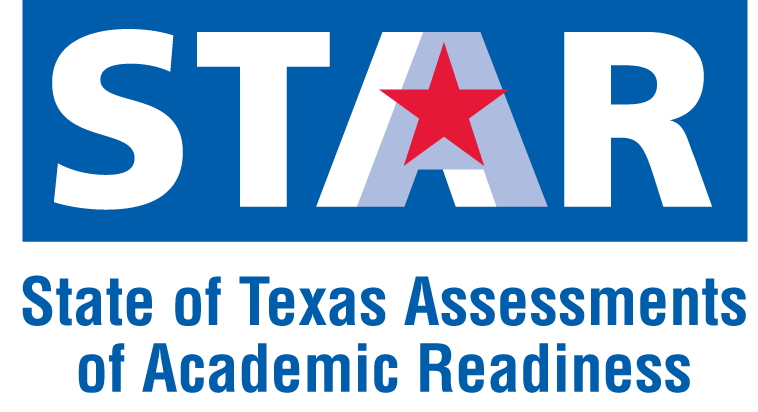The State of Texas Assessment of Academic Readiness tests, which would initially count for 15 percent of student’s final core class grades, have been altered by the district to exclude the 15 percent requirement for its debut.
Parents and school superintendents from around the state voiced their concern to Texas Education Commissioner Robert Scott over the 15 percent regulation. Scott’s response was to allow districts to choose whether to delay or retain the regulation for the test this year only.
“I think [the deferral is] a lot better, because I don’t think I’m doing that great in all my classes and that could probably really help,” freshman Breeanna Kutyba said. “I’ll still take [the test] seriously, but for the most part, if I do OK on it I’m not worried too much. It’s good to have the experience. I was kind of shocked when they told us we were doing a whole new thing, I was kind of scared but I feel much better now.”
End of Course exams in the state have been offered for several years, however they were not considered STAAR tests according to Texas Education Agency representative Debbie Ratcliffe. Klein ISD started EOC field-testing last year by separating the test subjects among the high schools. The school has, for the second year, been assigned the science core subjects.
“We field test so we can build future forms of the test. For example, we will be collecting data on how juniors do in taking the English III course,” Ratcliffe said. “We want to get a sense of how difficult the items we created are. When we see the performance by students who are taking a test they do not need to have for graduation, we fill-in a factor for motivation. The performance of the students this year helps us to figure out for relatively difficult items.”
Despite the fact that the exams will not count towards final grades, students are still encouraged to give their best effort. Just as with TAKS, according to assistant principal and former EOC specialist Elizabeth Edmonson, students who fail the STAAR tests will still be required to attend remedial classes the following school year.
“I think that anytime you tell a kid that it’s not going to count towards their grade, they think that it doesn’t really matter,” Edmonson said. “I think regardless of it counting or not, they need to be aware that they do still need to pass it in order to graduate. They can’t just blow it off.”
Along with the district’s deferral of the 15 percent constraint, the state will also gift students with a lower standard of grading this year. With STAAR being the fifth state-wide examination since 1975, the TEA has developed a system to guarantee this to students.
“In our previous testing programs, we’ve phased-in the performing standards [because] each new passing program is a little harder than the one before it so we don’t want to create a challenge that’s too great for our students,” Ratcliffe said in a conference. “We believe in incremental improvements and so we phase-in each time there is a new testing program.We anticipate that at the recommended pass score for STAAR that we will have fewer students pass than currently pass under TAKS because the tests are required to be more rigorous. However, we’ll make a recommendation to the commissioner of education and it will be up to his determination to phase this in and perhaps have it [so] that the students who take the test in the spring will be held at a lower standard than the recommendation. While we won’t make adjustments to the final standards for the STAAR programs, we might be able to make adjustments to the phase-in and how long that period will last.”
Although STAAR will still have a relative scale, its conversion when being counted for student’s final grades is not standardized, leaving the conversion to individual districts.
“With TAKS, the state would send a conversion,” Edmonson said. “For example whatever the scale score was that the kids got across the state, the state would say that scaled score is equivalent to a 90, an 80, a 70. With the EOC it’s going to be subjective to whatever that district decides it’s going to be.”
Because of the recent rule change, the district does not have a definite scale yet.
“The scale has to be approved by the board first,” Assistant Principal Jeff Bailey said. “We are trying to find one that is in the best interest of our students and school but that reflects the rigor of the test. It’s been difficult because the state hasn’t given us the passing standards to convert from.”
According to registrar Beverly Driskell, a conversion is not necessary for this year as the percentage rule will not take place. Neighboring districts are communicating with each other so as to keep their scales similar according to Bailey.
“We’re always in contact with each other to find the best solution,” he said. “There is a lot of research that’s been done, a lot of communication.”
Even with similar conversion among district, problems may occur from students outside the area.
“At this point, we have to hold the student’s grades until the district puts its credit policy in place,” Driskell said. “After the decision is made the registrars will have more responsibilities. Everything from keeping records to deciding how to count in the test to students’ credits.”
In order to graduate students must meet the minimum passing requirement on the 12 EOC examinations they will take during their four years in high school. A cumulative score will be taken by adding the 12 scores.



